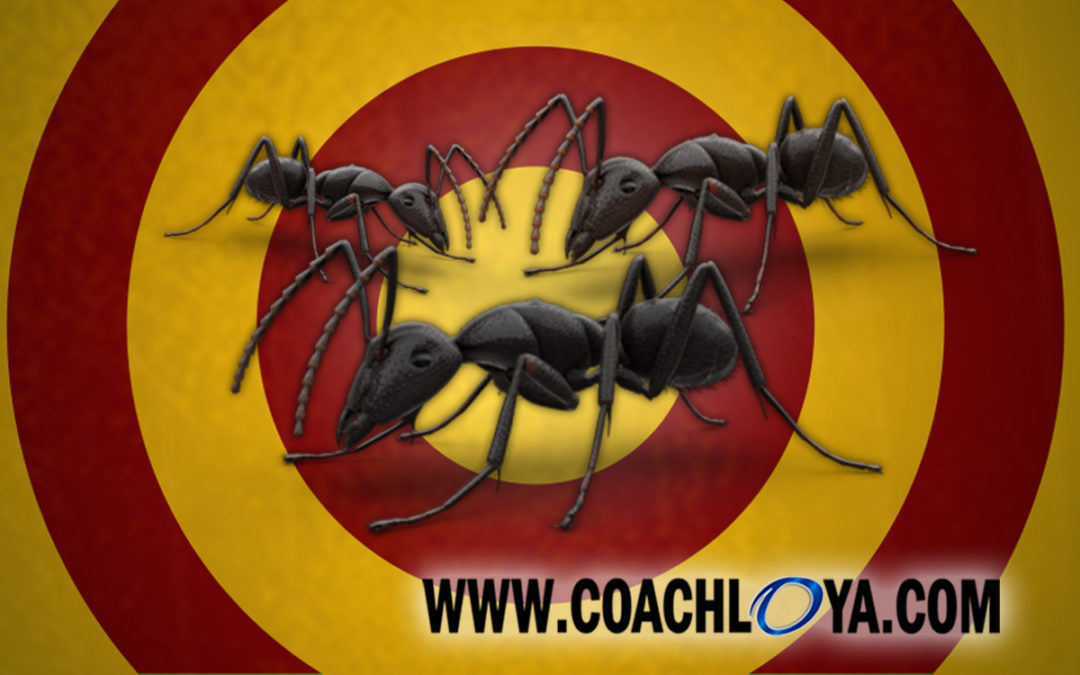Good teammates monitor their ANT populations.
Renowned physician and psychiatrist Dr. Daniel Amen coined the term ANT (Automatic Negative Thought) in the early 1990s.
After an especially tough day of dealing with suicidal patients, troubled teens, and contentious married couples, the New York Times bestselling author of Change Your Brain, Change Your Life came home to discover that his kitchen had been overrun by an ant infestation.
None of the insects were an imposing problem on their own, but en masse they were a formidable foe.
While battling the infestation with wet paper towels, it occurred to Dr. Amen that the patients he had seen earlier that day were embroiled in a comparable situation. Their anxiety, depression, and grief were the result of their minds being overrun by negative thoughts. (e.g., This will never work out. Things will never be the same. I’ll never get used to this new normal. I’m a loser, etc.)
Although the negative thoughts were in many ways a natural reaction to the circumstances, their abundance was causing a biochemical change in his patients’ brains. The ANTs were robbing his patients of joy and propelling them into a downward mental spiral.
On the Positive University Podcast, Dr. Amen discussed how certain conditions can cause ANT populations to surge.
“ANT populations go up when you haven’t slept. ANT populations go up in women the week before they start their period. ANT populations go up when you’re withdrawing from alcohol or marijuana. ANT populations go up when you haven’t eaten in a while,” Amen said.
From a good teammate perspective, how you monitor conditions that are conducive to an increase in ANT populations can define how good of a teammate you are.
Take the issue of not eating in a while. Not eating drops blood sugar, which reduces blood flow to the frontal lobe—the area of the brain responsible for higher cognitive functions like memory, impulse control, problem solving, and social interaction.
This condition alters the body’s biochemical composition and invites ANTs to enter your mind. It is the equivalent of leaving an open pack of sugar on a kitchen counter.
Hangry people aren’t good teammates because they’re overrun with negative thoughts. Their downward spiral makes them increasingly irritable, irrational, and emotionally volatile.
Good teammates are aware of this reality, so they take precautions to keep themselves and their fellow teammates from entering a state of hangriness. They plan meals in advance, stick to a mealtime schedule, and carry snacks in case that schedule is unexpectedly disrupted.
Anyone who has ever had to deal with a hangry teammate knows how impactful of a good teammate move it can be to have some snack crackers on hand.
Good teammates employ similar strategies for issues related to lack of sleep, substance withdrawal, or any other detrimental conditions. They understand that prevention is always a better strategy than reaction—especially when it comes to ANT populations.
As always…Good teammates care. Good teammates share. Good teammates listen. Go be a good teammate.





